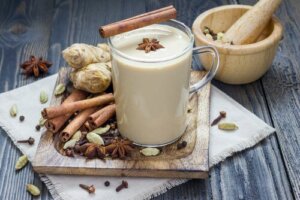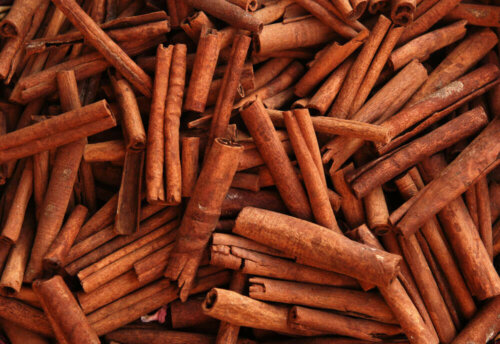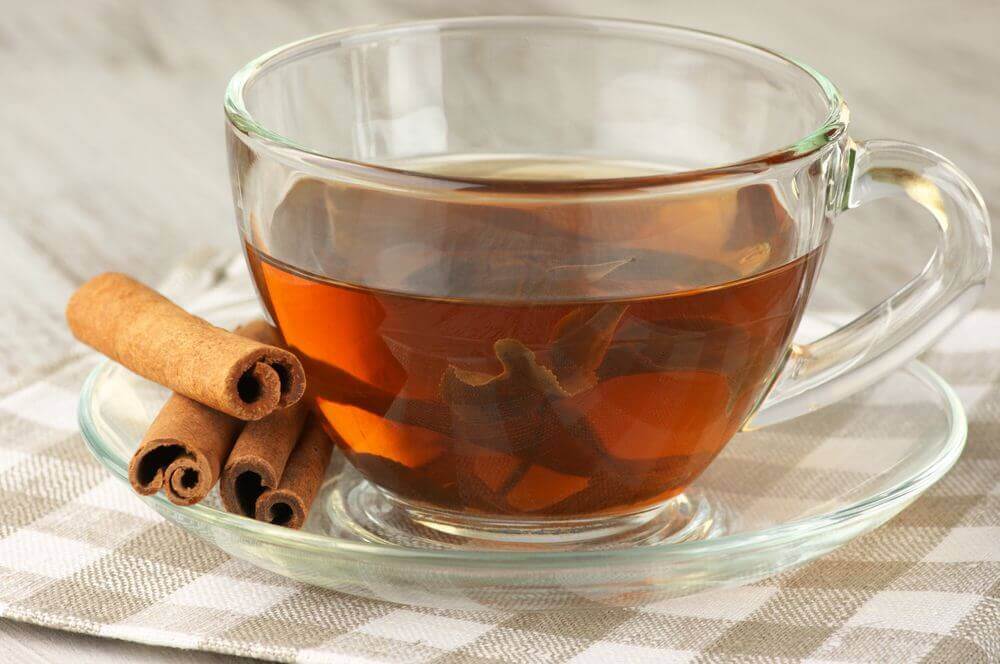Eight Plants that Help Lower Your Blood Sugar


Written and verified by the pedagogue in physical education and nutritionist Elisa Morales Lupayante
When a person is told they have high blood sugar, they’re usually advised to make certain changes in their diet. In their desire to get better, they may ask themselves the following question: Are there plants that help lower your sugar levels?
Over the years, a number of different investigations have been conducted to find out if any natural ingredients can provide health benefits and specifically with respect to controlling sugar levels.
The medicinal potential of plants
There are some plants that have been shown in studies in rodents to have beneficial effects on health and sugar control. An example of this is the cinnamon tree. Both in its stem and bark and other parts it has compounds with medicinal potential.

Regarding the use of plants as a complement to the treatment prescribed by the physician, in a review published in 2015 in the journal Farmacéuticos Comunitarios, the researchers noted the following:
“Patients often ask for pharmaceutical advice on the use of these plants in the treatment of type 2 diabetes mellitus; however, there are no robust studies to help pharmacists provide reliable advice.”
On the other hand, researchers point out that many of the studies that exist around plants with medicinal potential for the treatment of diabetes and related issues are poorly designed, include few human patients, and provide heterogeneous results, making it very difficult to determine a utility.
Most health experts share this view. Therefore, many recommend not combining the treatment they prescribe with drinks or plant remedies (of any kind).
This isn’t to say that the potential of plants, foods, or other issues has been ruled out, but that much more research is needed to approve their use in certain contexts (such as treatment to control blood sugar, for example). Otherwise, the health of patients may be at risk.
Drinks to lower your blood sugar
In order to lower blood sugar, several drinks made with plants have been recommended in the popular sphere. Most of them are variants of cinnamon tea. Let’s see some of them below.
Note: we don’t recommend drinking any of these without first consulting your doctor. The professional won’t only know how to indicate if it’s convenient or not, but can suggest a specific dose, so it doesn’t cause interactions or adverse reactions.
Oatmilk and cinnamon
Both oats and cinnamon are foods of vegetable origin that can be combined in a light, relaxing drink with a very pleasant taste, which could also be taken both cold and hot.
Ingredients
- 1 c. of oatmeal
- 8 c. of water
- 1 cinnamon stick (optional)
How to prepare
- Soak the oats in two liters of water for 12 hours
- After the indicated time, strain the soaked oatmeal and place it in a blender along with the cinnamon
- Consume in moderation, at most twice a day
Note: some consider Masala chai an Indian drink that consists of a mixture of tea with spices and aromatic herbs, which can also be beneficial.
Read more about The Benefits of Having Oatmeal for Breakfast
Chamomile and cinnamon to lower your blood sugar
According to some studies, chamomile may be helpful in lowering your sugar levels. Therefore, some recommend drinking it as an infusion, along with some fresh cinnamon.
Ingredients
- 1 c. of water
- 1 tbsp. of chamomile flowers
- ½ tbsp. cinnamon powder (or a cinnamon stick)
How to prepare
- Bring the water to a boil, and add the chamomile and cinnamon
- Let it steep on low heat for 3-4 minutes
- Drink in moderation, never more than two cups a day

Sesame and coconut milk to lower your blood sugar
Another of the plant drinks to lower your sugar levels is coconut milk and sesame seeds.
Ingredients
- 1 c. sesame seeds
- 4 c. of natural coconut milk
Preparation
- Place the sesame seeds in a hot frying pan and cook over medium heat until golden brown
- Grind the roasted sesame to a smooth paste
- Dissolve the product in the coconut milk
- Drink in moderation
Recommendations on medicinal drinks
Before consuming any drink or natural remedy, consult your doctor, to avoid interactions with drugs, foods, or various adverse reactions.
Also, keep in mind your doctor will be able to tell you how much of a drink you can consume daily and why. Make sure you follow their advice since indiscriminate consumption of natural drinks (even if they seem harmless to you) can be risky and counterproductive.
For example, if you consume a drink that isn’t suitable for you, instead of helping to lower your blood sugar levels, it can increase them and cause complications.
- Never mix several “medicinal” drinks at once, as they won’t give you any more benefits and may actually cause discomfort
- Although it may seem obvious, it’s always good to remember that: It’s NOT recommended to sweeten the drinks
- Natural drinks won’t “eliminate” the excesses from eating pastries or sweets. Neither will they give you an immediate and magical solution, and they won’t “balance” the body after a large meal
- Maintain a balanced diet and adequate hydration at all times. And if you have doubts about how to do this, consult your doctor
- Avoid the consumption of food that don’t contribute to your health, such as pastries, fried foods, sweets, etc
In conclusion
Many people today have high blood sugar levels due to a combination of poor diet and other factors, such as genetics. Therefore, it’s important to have regular medical checkups and try to maintain a healthy lifestyle.
These plant drinks to lower your sugar levels can be a supplement to the diet, as long as the doctor authorizes it. In this case, it’s necessary to consume them in moderation.
All cited sources were thoroughly reviewed by our team to ensure their quality, reliability, currency, and validity. The bibliography of this article was considered reliable and of academic or scientific accuracy.
- Abdollahi, A., Adelibahram, F., Ghassab-Abdollahi, N., Araj-Khodaei, M., Parsian, Z., & Mirghafourvand, M. (2022). The effect of Salvia officinalis on blood glycemic indexes and blood lipid profile in diabetic patients: a systematic review and meta-analysis. Journal of Complementary and Integrative Medicine, 20(3), 521-529. https://pubmed.ncbi.nlm.nih.gov/35106985/
- Abdulrazak, A., Tanko, Y., Mohammed, A., Mohammed, K. A., Sada, N. M., & Dikko, A. A. (2018). Effects of Clove and Fermented Ginger on Blood Glucose, Leptin, Insulin and Insulin Receptor Levels in High Fat DietInduced Type 2 Diabetic Rabbits. Nigerian Journal of Physiological Sciences, 33(1), 89-93. https://pubmed.ncbi.nlm.nih.gov/30091738/
- BDA. (enero de 2023). Fluid (water and drinks) and hydration. British Dietetic Association. The Association of UK Dietitians. https://www.bda.uk.com/resource/fluid-water-drinks.html
- Bernardo, M. A., Silva, M. L., Santos, E., Moncada, M. M., Brito, J., Proença, L., Singh, J., de Mesquita, M. F. (2015). Effect of Cinnamon Tea on Postprandial Glucose Concentration. Journal of Diabetes Research, 2015, 913651. https://www.ncbi.nlm.nih.gov/pmc/articles/PMC4516848/
- Bindu, J., & Narendhirakannan, R. T. (2019). Role of medicinal plants in the management of diabetes mellitus: a review. 3 Biotech, 9(1), 4. https://www.ncbi.nlm.nih.gov/pmc/articles/PMC6291410/
- Bule, M., Albelbeisi, A. H., Nikfar, S., Amini, M., & Abdollahi, M. (2020). The antidiabetic and antilipidemic effects of Hibiscus sabdariffa: A systematic review and meta-analysis of randomized clinical trials. Food Research International, 130, 108980. https://www.sciencedirect.com/science/article/abs/pii/S0963996920300053
- Butacnum, A., Chongsuwat, R., & Bumrungpert, A. (2017). Black tea consumption improves postprandial glycemic control in normal and pre-diabetic subjects: a randomized, double-blind, placebo-controlled crossover study. Asia Pacific Journal of Clinical Nutrition, 26(1), 59-64. https://pubmed.ncbi.nlm.nih.gov/28049262/
- do Nascimento Kaut, N. N., Rabelo, A. C. S., Araujo, G. R., Taylor, J. G., Silva, M. E., Pedrosa, M. L., Chaves, M. M., Rossoni Junior, J. V., & Costa, D. C. (2018). Baccharis trimera (Carqueja) Improves Metabolic and Redox Status in an Experimental Model of Type 1 Diabetes. Evidence-Based Complementary and Alternative Medicine, 2018, 6532637. https://pubmed.ncbi.nlm.nih.gov/30622608/
- Fu, Q. Y., Li, Q. S., Lin, X. M., Qiao, R. Y., Yang, R., Li, X. M., Dong, Z. B., Xiang, L. P., Zheng, X. Q., Lu, J. L., Yuan, C. B., Ye, J. H., & Liang, Y. R. (2017). Antidiabetic Effects of Tea. Molecules, 22(5), 849. https://www.mdpi.com/1420-3049/22/5/849
- Fundación Española del Corazón. (s. f.). Dieta para la diabetes – Hiperglucemia e hipoglucemia. Consultado el 16 de enero de 2024. https://fundaciondelcorazon.com/nutricion/dieta/1252-dieta-para-la-diabetes.html
-
Johnson, E. C., Bardis, C. N., Jansen, L. T., Adams, J. D., Kirkland, T. W., & Kavouras, S. A. (2017). Reduced water intake deteriorates glucose regulation in patients with type 2 diabetes. Nutrition Research, 43, 25-32. https://www.sciencedirect.com/science/article/abs/pii/S0271531717300489
- López, R, P., Pichardo, O, E., Avila, N, A., Vázquez, M, N., Tovar, A. R., Pedraza, C, J., & Torres, N. (2014). The effect of nopal (Opuntia ficus indica) on postprandial blood glucose, incretins, and antioxidant activity in Mexican patients with type 2 diabetes after consumption of two different composition breakfasts. Journal of the Academy of Nutrition and Dietetics, 114(11), 1811-1818. https://www.sciencedirect.com/science/article/abs/pii/S2212267214010211
- Naseri, K., Saadati, S., Sadeghi, A., Asbaghi, O., Ghaemi, F., Zafarani, F., Li, H.-B., & Gan, R.-Y. (2022). The Efficacy of Ginseng (Panax) on Human Prediabetes and Type 2 Diabetes Mellitus: A Systematic Review and Meta-Analysis. Nutrients, 14(12), 2401. https://www.mdpi.com/2072-6643/14/12/2401
- Palma, X., Thomas-Valdés, S., & Cruz, G. (2021). Acute Consumption of Blueberries and Short-Term Blueberry Supplementation Improve Glucose Management and Insulin Levels in Sedentary Subjects. Nutrients, 13(5), 1458. https://www.mdpi.com/2072-6643/13/5/1458
- Shabani, E., Sayemiri, K., & Mohammadpour, M. (2019). The effect of garlic on lipid profile and glucose parameters in diabetic patients: A systematic review and meta-analysis. Primary Care Diabetes, 13(1), 28-42. https://www.sciencedirect.com/science/article/abs/pii/S1751991818302006
- Shashikumar, J. N., Champawat, P. S., Mudgal, V. D., & Jain, S. K. (2019). Role of fenugreek (Trigonella foenum graecum) on in management of diabetes disease. Journal of Pharmacognosy and Phytochemistry, 8(4), 184-187. https://www.phytojournal.com/archives?year=2019&vol=8&issue=4&ArticleId=8846
- Taj Eldin, I. M. (2015). The effects of Allium cepa (red onion) in fasting blood glucose and insulin levels of normal human volunteers. Journal of Diabetes & Metabolism, 6th Global Diabetes Summit and Medicare Expo. https://www.iomcworld.com/proceedings/the-effects-of-allium-cepa-red-onion-in-fasting-blood-glucose-and-insulin-levels-of-normal-human-volunteers-30224.html
- Takahashi, M., Ozaki, M., Miyashita, M., Fukazawa, M., Nakaoka, T., Wakisaka, T., Matsui, Y., Hibi, M., Osaki, N., & Shibata, S. (2019). Effects of timing of acute catechin-rich green tea ingestion on postprandial glucose metabolism in healthy men. Journal of Nutritional Biochemestry, 73, 108221. https://www.sciencedirect.com/science/article/abs/pii/S0955286319300397
- Watanabe, S., Okoshi, H., Yamabe, S., & Shimada, M.(2021). Moringa oleifera Lam. in Diabetes Mellitus: A Systematic Review and Meta-Analysis. Molecules, 26(12), 3513. https://www.ncbi.nlm.nih.gov/pmc/articles/PMC8229498/
- Zemestani, M., Rafraf, M., & Asghari-Jafarabadi, M. (2016). Chamomile tea improves glycemic indices and antioxidants status in patients with type 2 diabetes mellitus. Nutrition, 32(1), 66-72. https://www.sciencedirect.com/science/article/abs/pii/S0899900715003287
- Zhang, H., Qi, R., & Mine, Y. (2019). The impact of oolong and black tea polyphenols on human health. Food Bioscience, 29(1), 55-61. https://www.sciencedirect.com/science/article/abs/pii/S2212429218301172
This text is provided for informational purposes only and does not replace consultation with a professional. If in doubt, consult your specialist.








